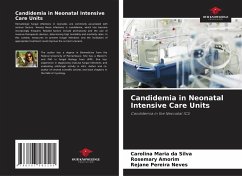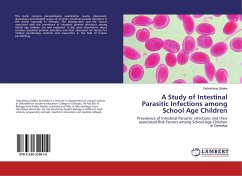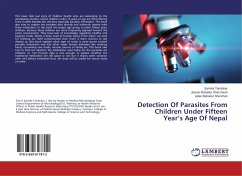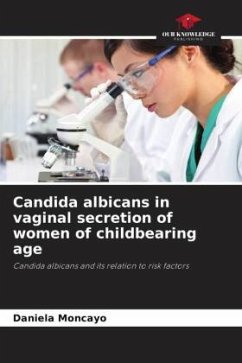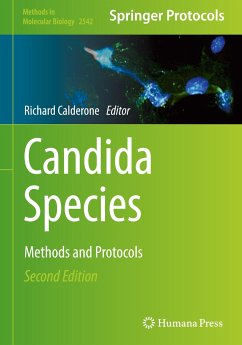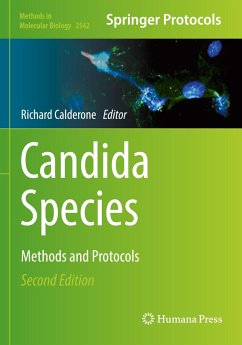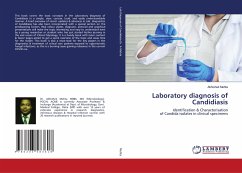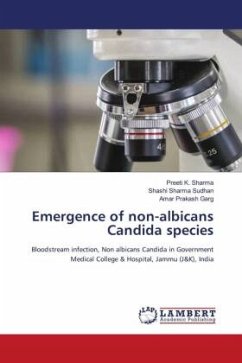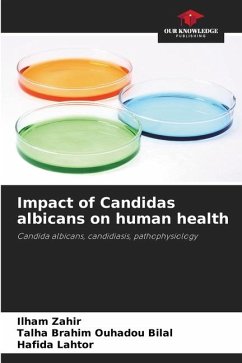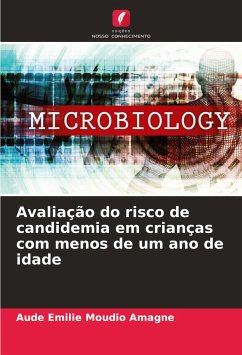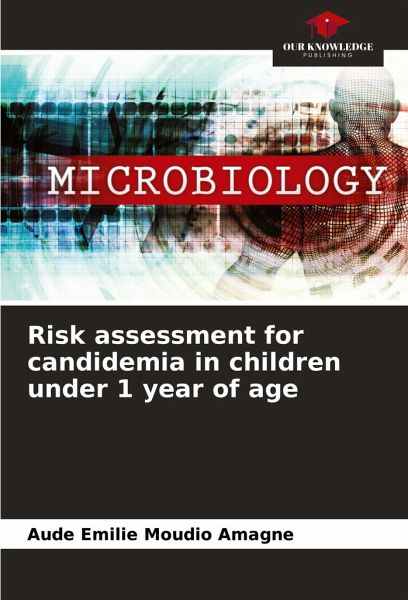
Risk assessment for candidemia in children under 1 year of age
Versandkostenfrei!
Versandfertig in 6-10 Tagen
27,99 €
inkl. MwSt.

PAYBACK Punkte
14 °P sammeln!
Candidiasis is a fungal infection caused by yeasts of the genus Candida. Candida spp is a commensal endosaprophyte fungus of the digestive tract and mucous membranes which, in a predisposed environment, can become pathogenic and spread throughout the body. The main focus is most often cutaneous-mucosal, then a hematogenous dissemination can occur, leading to a disseminated candidiasis or candidemia. The objective of the present study is to determine the risk of candidemia in children aged 0 to 12 months at the Mother and Child Center (MCC) in Yaounde by calculating the colonization index. This...
Candidiasis is a fungal infection caused by yeasts of the genus Candida. Candida spp is a commensal endosaprophyte fungus of the digestive tract and mucous membranes which, in a predisposed environment, can become pathogenic and spread throughout the body. The main focus is most often cutaneous-mucosal, then a hematogenous dissemination can occur, leading to a disseminated candidiasis or candidemia. The objective of the present study is to determine the risk of candidemia in children aged 0 to 12 months at the Mother and Child Center (MCC) in Yaounde by calculating the colonization index. This study included 55 patients. The identification allowed the identification of 75 strains of C. albicans, 12 of C. dubliniensis, 5 of C. lusitaniae.5 of C.parapsilosis and 4 of C.famata. Calculation of the colonization index (CI) for each patient resulted in an average of 65.47% of patients with a CI 0.5 and 34 .53% of infants with a CI between 0.25 and 0.33. The colonization index of children coming to the Yaounde MEC is high, reflecting the risk for these children to develop candidemia.



